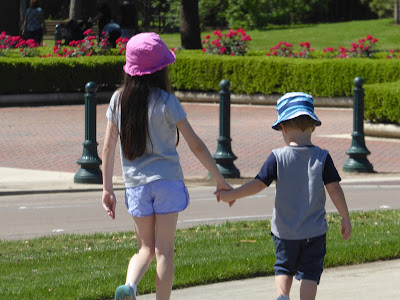 |
| Image courtesy of NASA |
In the days leading up to the 2024 eclipse, which will cover much of the USA, I’ve been pondering on how the physical eclipse – when the Sun is obscured by the Moon, from our viewpoint on Earth, along and either side of the line of totality – could be looked at from an astrological/psychological point of view.
The Sun represents the individual’s sense of self in the natal chart. The Sun is symbolic of the mind and the will, of the ability to make decisions, to take the lead, to assert oneself, to be an individual, to choose and yes – to shine and stand out in some way.The Moon represents the individual’s feelings, their emotions, the need to be loved, to have those emotional needs met, and the inner child, who might be impish or fun-loving or scared, shy and vulnerable.
If – and only if – we’re travelling along the path of personal growth and self-understanding, we’ll already be reasonably aware of our own strengths and vulnerabilities – all good Sun and Moon stuff. So shifting away from the incredible experience of physically seeing and feeling a total eclipse, and viewing it astrologically, how might it be experienced in real, everyday life when our Sun/light/sense of self is eclipsed, clouded, hidden and darkened by our Moon/feeling, sensitive/needy self?
When something happens in life where our feelings totally take over and block out our more rational mind, does our thinking go haywire? Do we have a knee-jerk emotional, irrational response, perhaps tapping into a previous traumatic event and triggering reactions similar to those we had then? If his happens, our sense of self – the Sun – takes a knock as we temporarily forget that we are OK just as we are, and that we’ve come a long way.
If this happens, it’s a personal eclipse and, unlike the real physical eclipse, it can happen any time. In a total eclipse, the Moon passes between the Earth and the Sun, blocking the Sun’s light for a short period of time. But it’s a temporary thing, and the transient experience of darkness and chill passes….as these effects can when we’re plunged into a personal life event “eclipse”.
With a real solar total eclipse, viewed from a location on Earth, there’s always plenty of notice of the event as excitement and anticipation build up ahead of the event. It’s predictable, whereas on a personal level, it may be less so if something or someone comes along, bringing experiences which swamp our sense of self and our rational mind. We forget that we can choose, can use our will (be it good will, strong will, or skilful will) to temper our emotions and ride out this temporary, personal eclipse.
Sun and the Mind
We gain a sense of self of the mind through the Sun, which, in the chart, represents our autonomous self - awareness. With its Cardinal quality, the Sun is our drive to be assertive, go-ahead and initiatory. The Sun is the sense of self we gain through our ability to make decisions and use the mind. It’s our capacity to choose, our capacity to make conscious choices and ultimately take responsibility for ourselves.
Whichever role you cast it in, it represents how we direct and use our will based on the decisions we make. It leads the way, and the rest of the planets, our psychological drives, follow. The Sun signifies our strength and power and this is involved when we discriminate and judge, when we think, form ideas and tap into our innate creativity.
The Sun, the sense of self and the will
Closely linked with the Sun is the use of the will. We can draw on
· our strong will which gives us determination and the capacity to keep going
· our skilful will which endows us with sound common sense and the ability to be flexible and adaptive as we work towards our goals, and
· and our good will which enables us to include others and to work selflessly for their benefit as well as our own.
The use of the will helps us to be goal-oriented and better able to go after what we want to achieve.
When we’re seeking to achieve the goals we set ourselves, it’s useful to remember that energy follows thought. Using the Sun/mind, we form our ideas and go on to make these real, to make them manifest. Doing so, we can be truly creative.
Our capacity to use our will, to be aware that energy follows thought and to find practical grounding in our everyday lives for our ideas and creativity can be developed and should be encouraged. It can help us strengthen the Sun and gain a greater, more centred self-confidence, and ride out the temporary effects of a personal “eclipse”.




